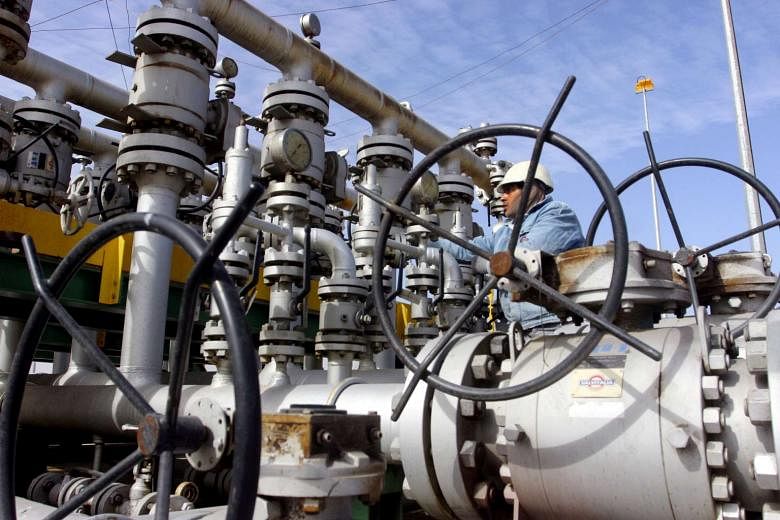NEW YORK (REUTERS, BLOOMBERG) - Oil prices rose over 4 per cent to a three-week high on Monday (Nov 21), bolstered by growing conviction that major oil producing countries would agree to limit output at a meeting next week.
Brent crude oil briefly touched US$49 a barrel. The London benchmark has risen 11 per cent in a week since Saudi Arabia, the de facto leader of the Organization of the Petroleum Exporting Countries, started a diplomatic charm offensive to persuade the group's more reluctant members to join its proposed output plan.
Opec members are due to agree a world oil freeze pact with non-Opec countries on Nov 30.
In recent days, several Opec members including Iran, along with non-member Russia, have suggested they were leaning toward a deal to limit output.
"When you've got all of the major players on board with a production cut, obviously you're very close to getting a deal done," said Phil Flynn, senior market analyst at Price Futures Group in Chicago. "You never know with Opec - sometimes they go to the last minute and there are a lot of false starts."
Brent crude futures rose US$2.04 to US$48.91 a barrel by 1:29pm. ET (1829 GMT). US West Texas Intermediate (WTI) strengthened by US$1.83 to US$47.52 a barrel, after climbing as high as US$47.80.
Russian President Vladimir Putin said he sees no obstacles to an Opec agreement this month as he reaffirmed Russia is willing to freeze crude output at current levels.
"Whether an agreement will be reached, I can't say 100 percent, but there's a strong likelihood that it will be achieved," Putin told reporters on Sunday after attending the Asia-Pacific Economic Cooperation summit in Lima.
Opec members last week proposed a deal for Iran to cap, rather than cut, output.
Iran has been one of the main hurdles facing any curtailment, as Tehran wants exemptions to try to recapture market share lost under years of Western sanctions.
Libya and Nigeria, whose exports have been hampered by violence, have also asked to be left out of any deal. Nigeria's oil production fell to 1.63 million bpd in the third quarter from 1.69 million in the second quarter.
Goldman Sachs now sees WTI at US$55 in both the first and second quarters of next year, compared with prior estimates of US$45 and US$50 a barrel, according to a note on Monday.
The bank now forecasts that Opec will put in place a short-term cut to 33 million barrels a day, while Russia will freeze production. In late September, the brokerage said conditions were not optimal for a cut to work.
Hedge funds took a more cautious stance on oil prices amid the flurry of Opec diplomacy, cutting their combined net long position in the three major Brent and WTI futures and options contracts by just 3 million barrels to 422 million barrels in the week ending Nov 15.

